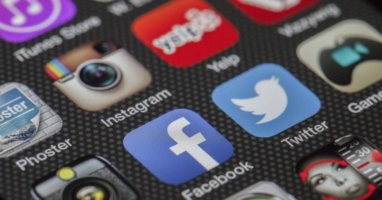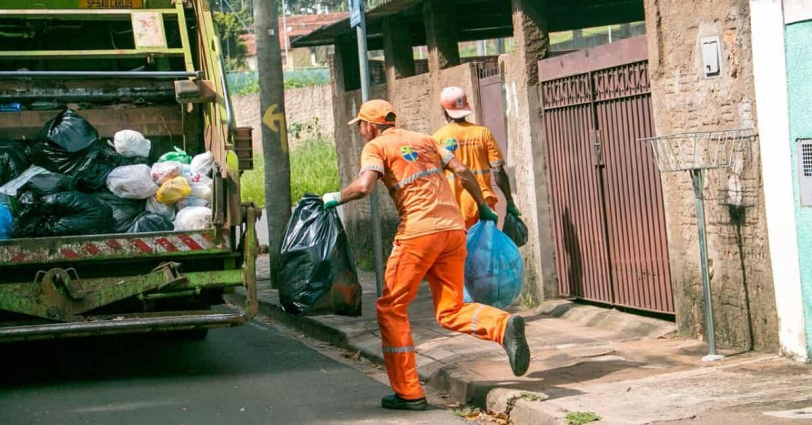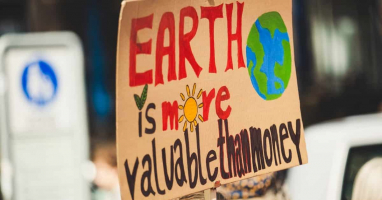I wrote this article in Japanese and translated it into English using ChatGPT. I also used ChatGPT to create the English article title. I did my best to correct any translation mistakes, but please let me know if you find any errors. By the way, I did not use ChatGPT when writing the Japanese article. The entire article was written from scratch by me, Saikawa Goto.
Introduction
Movies and books covered in this article

Three takeaways from this article
- To feel richness, it is necessary for society as a whole to be rich.
- Basic income is the most effective way to solve poverty.
- The choice of work should be based on “how to want to live” rather than salary.
Self-introduction article


Published Kindle books(Free on Kindle Unlimited)
“The genius Einstein: An easy-to-understand book about interesting science advances that is not too simple based on his life and discoveries: Theory of Relativity, Cosmology and Quantum Theory”
“Why is “lack of imagination” called “communication skills”?: Japanese-specific”negative” communication”
The quotes in the article were translated using ChatGPT from Japanese books, and are not direct quotes from the foreign language original books, even if they exist.
A Society that is Wealthy Yet Can’t Find a Reason to Get Out of Bed
The “Wealth” in Terms of Data

Let’s start with a little bit of history lesson. Yes, in the past, everything was worse than it is today. Until very recently, most people were poor, hungry, unclean, anxious, ignorant, sick, and ugly. That’s the truth of world history.

The probability of a child dying at birth was high in the past, and many people lost their lives to various diseases that are now treatable. Not too long ago, the world was a place like that.
Compared to such times, modern people enjoy a vastly greater level of wealth. Of course, there are still various challenges in the world, and some problems have become more widespread due to the widening gap. However, at least if we live in Japan, we will hardly face an insurmountable poverty or a crisis of potentially losing our life tomorrow. The spread of the COVID-19 has transformed society, but still, all indicators would show that people today are more “prosperous” than they were a few decades ago.

An Era Where We are “Prosperous” But Cannot Feel “Happy”
However, even though we are “prosperous,” we may not feel “happy.” In this book, it is expressed as follows:
Here, there is only one thing missing, a reason to get out of bed in the morning.


To put it more clearly, the book states the following:
The true crisis of our time and our generation is not that the current situation is not very good or that the future may be uncertain.
It is that we can no longer envision a better life.
I believe that many modern people share this feeling.

I myself am like that. I’m not in an especially difficult environment, nor am I living an especially rich life compared to others living in the same era. I feel like I’m below average, and I’m anxious about whether I’ll be able to sustain my life in the distant future, but I don’t have any specific problems or anxieties that are particularly present in my field of view.
But anyway, it’s just boring. I don’t have any desires like “I want to do this in the future” or any motivation to say “let’s take on this challenge to get there”. I think reading and watching movies are just a way to pass the time, and I don’t have anything I’m really passionate about.

I feel these issues are not just a matter of my personality, but also a problem of our times.
We live in an incredibly affluent age, but how boring it must be. To borrow the words of Fukuyama (*Francis Fukuyama), there is ‘no art, no philosophy’ in it. What remains is “just managing the relics of history”.
In times that were not so affluent, we could have hoped that “we could become rich if we tried hard enough,” and in the process, various new things (such as art and philosophy) might have been born.

However, what about now? Of course, with the advancement of technology, unexpected things may still be created, and we may face unknown experiences. However, it can be said that the significance of creating something new in an era that is not rich and creating something new in a rich era changes greatly.
Because we are rich, even if something new is created, it feels like “just managing the relics of history”. In this book, the author first clarifies the problems of this current era.

The Solution is to Make the Whole Society Prosperous
To us modern people who cannot imagine the future utopia, the author presents solutions such as “basic income,” “wealth creation,” and “immigration policy.” Let’s first touch upon what the author aims to achieve with these solutions.
It is to “bottom up the benefits of the whole society.” The author argues that the reason why we cannot feel happy even if we are wealthy is that the entire society is not prosperous.

I wonder what this means. The book says something like this:
However, perhaps the most intriguing discovery is that when inequality becomes too great, even wealthy people suffer. They become more likely to feel depressed, become suspicious, and burdened by countless other social problems.
This conclusion was reached during a basic income social experiment aimed at reducing the wealth gap.
Indeed, this may be understandable to us who are living under the COVID-19 pandemic. For example, in the United States, hate crimes against Asian people were often reported in the news. Rather than this would not be caused by the wealth gap, but by misconceptions such as “Asians are spreading the virus,” knowing that such hate crimes are happening could make Asians would feel less likely to visit the United States.

Causation may not always be easy to imagine with specific examples like this, but in any case, it is entirely possible for even those who should be enjoying prosperity to be damaged by the increased anxiety and tension in society.

it seems that the economic benefits that society gained from this policy were twice the amount invested.

In order to provide homes for the homeless for free, it costs money of course. Let’s say it cost 10 million dollars. However, by eliminating the need for various support that had been provided for the homeless, the saved money can be used for something else. Let’s say the saved money is 20 million dollars. This means that society gained an economic benefit that is twice the amount of the money invested. If the saved 10 million dollars is used for other expenses, it could potentially benefit wealthy people.
Similar social experiments are being conducted all over the world and it has been revealed that directly solving social issues is psychologically and financially more beneficial than providing indirect support for social problems.

It’s not easy to envision a utopia in a society where wealth is widespread, but many specific experiments have already shown clear results. By understanding them, we can clarify the path we should take in the future.
Basic Income
What is Basic Income?
Basic income is simply “giving a certain amount of money directly to everyone.” It’s like the 100,000 yen subsidy paid by the Japanese government as an economic measure during the COVID-19 pandemic. It’s also called “free money” because it doesn’t specify how to use it.

Experiments on basic income have been conducted in various ways, and the following conclusions have been reached according to research:
It has been found that providing free money leads to a decrease in crime, child mortality rate, malnutrition, teenage pregnancy, unauthorized absences, and improves school grades, economic growth, and gender equality.

Reasons Why Basic Income is Not Implemented
You may think, ‘If it is such an effective measure, why not implement it right away?’ However, it is not that simple. The reason is due to the “image” that we have.

Experiments on basic income are basically conducted for the purpose of assisting the impoverished. It involves providing free money without specifying how it should be used, to people who live in poverty.
Now, how do we feel when we hear this? Don’t we think, “If we give these people free money, won’t they just use it for alcohol or gambling?” However, the reality is quite different.


There is a group of goods that poor people don’t buy with free money. They are alcohol and tobacco. In fact, according to a large-scale study by the World Bank, the consumption of alcohol and tobacco decreased in 82% of all cases surveyed in Africa, South America, and Asia.
Even more surprising results were found in Liberia, where an experiment was conducted to give $200 to the poorest people. Alcoholics, drug addicts, and petty criminals were gathered from the slums. Three years later, what did they use the money for? Food, clothing, medicine, and little businesses. “If these people don’t waste free money,” one researcher wondered, “who will?”

This is the result of a study that was conducted according to proper procedures, so we should accept it at face value. But why do we have a different image of reality?
It’s because we tend to believe that “poor people are lazy.” I can understand why we feel that way. There is a psychological desire to think that “I am different from those poor people.”

For example, when a heinous crime occurs, many people want to know the motive and feel relieved if the motive is abnormal. That’s because they can believe “committing such a heinous crime is because the person is inferior human, and I won’t be like that”. The same goes for poverty. People want to feel relieved by thinking “that person is poor because they’re lazy. I won’t be poor because I’m not lazy”.
However, research has shown that the following is true:
Poor people, when they receive free money, generally put more effort into work than before.
It means that it’s not because they are lazy that they are poor, but rather they cannot help but to behave in ways that are perceived as lazy because they have become poor for some reason.

Reasons Why Poverty Measures Other Than Basic Income Do Not Work
And this point, in other words, “the fact that poverty leads them inevitably lazy” is also why measures other than basic income do not work well.

In concrete terms, how much does poverty make people stupid? “Its effect is equivalent to a drop of 13 to 14 IQ points,” says Shafir. “This is comparable to the effects of sleep deprivation or alcohol addiction”.
While measures such as providing education to the poor may be implemented, it is said that it is no different from providing education to “alcoholics.” In other words, it means that providing education is meaningless unless one first escapes poverty.

In this way, any measure taken to address poverty will be meaningless unless it first starts with “getting over the poverty line”. It is a reasonable observation that due to the endless worries caused by poverty, people cannot have a long-term perspective (this state is apparently called “mental bandwidth”). Not quite the same as poverty, though, I remember that when I was depressed and shut myself in, my thinking ability was extremely low. All I could think about was my problems going round and round in my head, and I couldn’t think about anything else. Whatever we do, nothing can start unless we are in a state of mind with few worries.
Another reason why measures other than basic income do not work is that supporters do not understand what poor people need.

I understood this by relating it to an episode in a disaster-stricken area.
It’s a common saying, but “Thousand Paper Cranes” is often listed as an unnecessary item among the things sent to disaster areas. Because it’s difficult to dispose of while the sentiment is appreciated. Similarly, it seems that a lot of “unwanted clothes” are sent from all over the country, but of course “unwanted clothes” are not needed in the disaster area either.

It is common for there to be a mismatch between what “people in need require” and “what can be provided as aid.” This is also true in the case of poverty. Usually, aid would involve tangible items (including education). But it’s unclear whether those are what poor people really need right now.
Besides, to tell the truth, I had no idea what the poor needed. Faye didn’t give them fish, and he didn’t teach them how to fish either. Based on his belief that the poor themselves truly understand what they need, he gave them cash.

Giving free money instead of goods allows poor people to decide how to use it themselves, which is the most effective way to deliver what they need the most.
However, as mentioned earlier, our perception that “poor people are lazy” prevents the realization of the most effective poverty solution, basic income. It is necessary to change our perception.

“Wealth Transfer” and “Wealth Creation”
“Wealth Transfer” Pays Higher Salaries
I’ve recently started hearing the term “Bullshit Jobs”. It means jobs that are pointless and meaningless. With the spread of the COVID-19, many people who were previously highly paid have come to realize that their jobs are actually useless through remote work, according to an article I read online.
In this book, “wealth transfer” refers to a bit narrower range of jobs. For example, the book cites lobbyists, social media consultants, telemarketers, high frequency traders, and some banking jobs as examples of such jobs.

Oddly enough, those earning the highest salaries are those in professions that only transfer wealth and create little tangible value. It’s a strange and paradoxical situation. Teachers, police officers, and nurses who support society’s prosperity endure low salaries, while those who transfer wealth, which is not even important or necessary for society and can even be destructive, prosper. How is this possible?
Indeed, many of the high-paying jobs in the world do not create much tangible value. I feel it’s strange that society undervalues people who are essential for social activities and create a great deal of value.

This book contains two very impressive episodes.
One of them is about a bank in Ireland. In 1970, employees of a certain bank went on strike and overnight, 85% of the country’s payment reserves became unmovable. This was a time before electronic payments were widely used. Scholars predicted that the strike would lead to a deadlock in the lives of the people.
However, in reality, nothing changed. The bank continued the strike for six months, but it had little impact on daily life. This is a perfect example that shows how banking activities that only “transfer wealth” are socially unnecessary.


One more story is about New York. In 1968, the garbage collectors in New York went on strike all at once. All garbage collection in New York stopped. Within just two days, the garbage had piled up to knee height. On the ninth day of the strike, when the piled up garbage reached 100,000 tons, the mayor gave in. This book doesn’t state directly whether the strike was the direct cause, but the garbage collectors in New York have now become a popular profession that everyone envies.
This is a clear example that shows how garbage collectors are socially indispensable.

What Happens When Talented People Gather for “Wealth Creation”
After summarizing such current situation, the author argues that if capable individuals were to gather for “wealth creation” rather than “wealth transfer”, the world could change even more.

This argument would be quite convincing when you think about it.
Talented people would tend to have a certain level of suitability for any profession. Since “wealth transfer” jobs tend to pay higher salaries, it is natural for them to flow in that direction. However, if these talented people were to take up “wealth creation” jobs, technology and social systems could change even more.
For every dollar a bank earns, 60 cents are lost somewhere in the chain of economic activity. But when a researcher earns a dollar, more often than not, at least five dollars, and often much more, are returned to the economy.
I had never thought about this before, but I can understand that intangible “wealth transfer” actually undermines the overall benefit to society. If we get caught up in this negative cycle, it would certainly be difficult to envision a better future.

The author proposes raising taxes on high-income earners as a way to attract capable individuals to “wealth creation” jobs. It means that by increasing taxes on those who earn high salaries, it is hoped that capable individuals will be more likely to pursue “wealth creation” jobs due to factors such as job satisfaction.
In addition, while not mentioned in the book, I read previously a description of “young Americans turning down job offers from large corporations to work for non-profit organizations.” This described a trend of young people choosing jobs based on social significance rather than salary. With the growing attention to SDGs, society and companies are increasingly required to prioritize social responsibility. From this societal trend, further transformation may be possible.

What Should Education Accomplish in Times Like These?
Change doesn’t happen naturally. To change the mindset of students who will enter society from now on, education will become increasingly important.

The central question is this: What knowledge and skills should today’s students acquire to be employed in the job market in the futurew, specifically in the year 2030?
However, this is exactly the wrong question.
The current education system is based on the perspective of “what knowledge and skills are necessary to become a desired and employed individual”. Although the hiring styles of companies differ greatly between Japan and Western countries, it seems that the Western style is becoming more sought after even in Japan.

However, the author points out that the question itself is already wrong. He insists that from now on, we should focus on the question of “how do we want to make a living?”
If we wish for everyone to become richer within this century, we should abandon the belief that all jobs have meaning. Additionally, why not discard the mistaken notion that a job’s social value is determined by its high salary?

Currently, everyone is thinking about what they should learn in order to get a high-paying job. However, a high salary work does not necessarily equal high value work. Therefore, it would be better to accumulate knowledge and skills based on “what kind of job do I want to make a living with?” Students should be given an education that encourages this perspective, according to the author’s point of view.
And I think that this way of thinking also has significance for those who are already working in society. In Japan, where lifetime employment is crumbling, it may become important to have a perspective of “what kind of job do I want to make a living with in the future?”

Accepting Immigrants Can Increase Employment Opportunities
Let’s touch briefly on the topic of immigration lastly.
In Japan, especially in urban areas, it’s become common to see foreign part-time workers in convenience stores (although this may have changed slightly due to the COVID-19). There are also news reports that industries such as agriculture would come to a standstill without workers from overseas who are accepted under the guise of job training

However, Japan is cautious about accepting immigrants. Not only immigrants, but also refugees are accepted in very small numbers. In the past, former President Trump made a big issue by saying that he would build a wall on the border with Mexico. While there are countries like Germany that are actively accepting immigrants and refugees, it seems that the world as a whole is strongly influenced by self-prioritization and anti-immigration sentiments.
There may be various reasons for accepting immigrants and refugees, so I do not want to comment on the pros and cons here, but research has already shown that accepting immigrants leads to prosperity. Employment increases as the number of immigrants increases, and in countries with contiguous borders, Japan is different though, large amounts of money spent on border security can be saved.

According to scientists at the World Bank, if all advanced countries accepted just 3% more immigrants, the amount of money available to the world’s poor would increase by $305 billion, three times the amount of total development aid.
As we can see from the above quote, accepting immigrants can also contribute to the overall prosperity of society, and this can be connected to whether we can imagine a better future.

Of course, it is not without its disadvantages, which are also pointed out in this book. However, we must change the idea that immigrants take away jobs, which is often said.
Conclusion
The author has continually appealed to society for ideas such as those described in this book, but has been completely unaccepted.

The idea itself is difficult to be taken seriously by society. Even I have felt that. For the past three years, I have been advocating for universal basic income, reduced working hours, and the eradication of poverty, but many times, my ideas have been criticized as unrealistic and too burdensome or blatantly ignored.
Certainly, the author’s claims may seem unrealistic, but we know the history of various social reforms that were once considered impossible to achieve.

In the past, people who advocated for the abolition of slavery, women’s suffrage, and same-sex marriage were seen as madmen. Even though they failed many times, great ideas always change society.
It’s true. Thanks to the predecessors who dared to speak up and continue their reckless challenges in the era when everyone thought it was impossible, we are where we are today. Society does not change rapidly, but if we give up and say ‘it’s impossible anyway’, nothing will happen.

Everyone should feel that slavery is a terrible thing. Similarly, People in the future who read this book may feel that society 100 years ago was so barbaric. It is necessary for society as a whole to share such a possibility.
Please do not misunderstand me. It is indeed capitalism that has opened the gates of the land of plenty. However, capitalism alone cannot maintain the land of plenty. Progress has become synonymous with economic prosperity, but we living in the 21st century must find another way to improve our quality of life.

For those of us who can’t feel happiness amidst our wealth, it can be said that this book gives us hope for the possibility of a utopia. I want you to listen to the author’s argument, thinking that believing is the first step.

Published Kindle books(Free on Kindle Unlimited)
“The genius Einstein: An easy-to-understand book about interesting science advances that is not too simple based on his life and discoveries: Theory of Relativity, Cosmology and Quantum Theory”
“Why is “lack of imagination” called “communication skills”?: Japanese-specific”negative” communication”







コメント